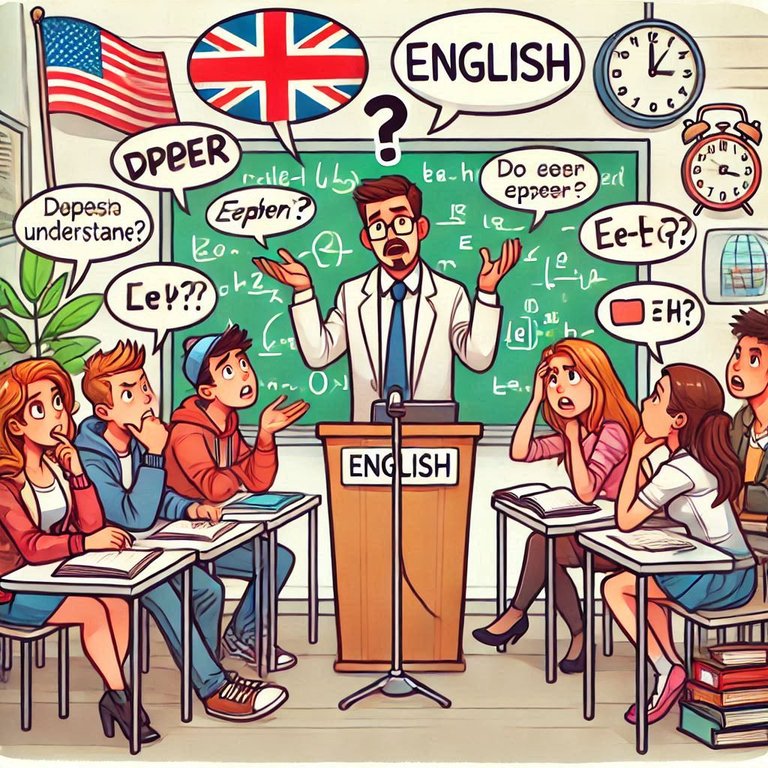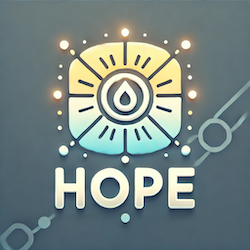The world of technology is dominated by the English language, any aspect of new technologies is generally designed in English and socialized in English.
For speakers of other languages, it is essential to understand English in order to learn, whether it be a programming language or something as advanced as Machine Learning.
I find it normal and even reasonable to use a language as a "universal language" for dissemination, but when we enter less academic and more social spheres, I believe there should be a certain reciprocity.
To focus more on the issue, I refer to Hive as a social network, where there is obviously an English-speaking predominance, which is logical given its origin, in which users of other languages almost always, if not in the majority of cases, provide an English translation of their entries.
But I do not see a reciprocation of this courtesy from English-speaking writers, except for some exceptions; at least, I only saw one user who I assume is English-speaking adding a translation to Portuguese to participate in a contest.
So I wonder, why is there no reciprocity by courtesy on Hive in this matter? I have been told, sometimes, that they do not understand my response in Spanish when there are tools to translate comments without leaving the app, or that to make it easier, I should include an English translation of my post.
I like the ecency app, but I see that you cannot translate the entry of a post, only the comments, and I believe that including the option to also translate the original post would be an excellent solution for the plurality of languages and users that coexist on Hive, but I would also like the courtesy to be mutual.
I do not have data on what happens to communities that write in a language other than English or Spanish, but it would be great for English speakers to remember that there are many more languages and maybe even learn one!
Thank you for visiting my blog, have an excellent start to the week!

Image Source / Fuente de la Imagen
Versión en Español
El mundo de la tecnología está dominado por el idioma inglés, cualquier aspecto de las nuevas tecnologías por lo general se diseña en inglés y se socializa en inglés.
Para los hablantes del resto de idiomas es una premisa indispensable el entender inglés para poder aprender, ya sea algún lenguaje de programación o algo tan avanzado como Machine Learning.
Veo normal y hasta razonable que se utilice un idioma como "idioma universal" para divulgación, pero cuando entramos a esferas menos académicas y más sociales, creo que debería haber cierta reciprocidad.
Para enfocar más la cuestión, me refiero a Hive como red social, en la que obviamente hay predominancia angloparlante, lo cual es lógico por su origen, en la que los usuarios de otros idiomas, casi siempre, cuando no es la mayoría de los casos, proveen la traducción al inglés de sus entradas.
Pero no veo una retribución de esta cortesía en los escritores angloparlantes, salvo alguna excepción, al menos yo solo ví a un usuario que asumo es angloparlante , agregar una traducción al portugués, para participar de un concurso.
Entonces me pregunto, por qué no existe una reciprocidad por cortesía en Hive en esto? Me han dicho, alguna vez que no entienden mi respuesta en castellano, cuando hay herramientas para traducir los comentarios sin salir de la app, o que para hacerlo más fácil, debería incluir una traducción al inglés de mi posteo.
Me gusta la app de ecency, pero veo que no se puede traducir la entrada de un post, solo los comentarios, y creo que incluir la opción de traducir también el posteo original sería una excelente solución para la pluralidad de lenguas y usuarios que coexisten en Hive, pero también me gustaría que la cortesía sea mutua.
No tengo datos de lo que pasa a las comunidades que escriben en otro idioma que no sea inglés o español, pero estaría bueno que los angloparlantes recuerden que existen muchos más idiomas y que hasta aprendan alguno!
Gracias por pasar por mi blog,que tengan un excelente inicio de semana!
Translated and formatted with Hive Translator by @noakmilo.






